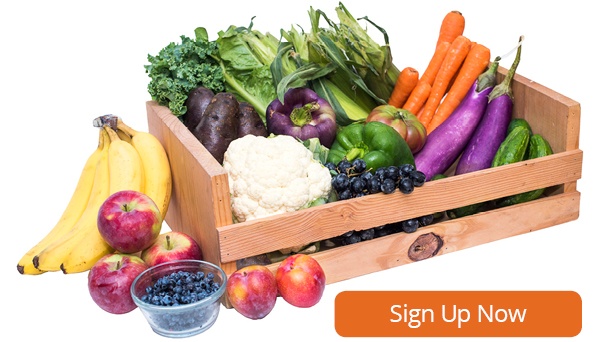What would the perfect fruit look like? It would probably be sweet and juicy. It might have a bright, edible skin so you don’t have to worry about messy peels and rinds. While you’re at it, you’d want to make it easy to grow and sturdy enough to take with you without getting smooshed like a brown banana at the bottom of lunch bag. Do you have an image in your head yet? Does it look something like this:
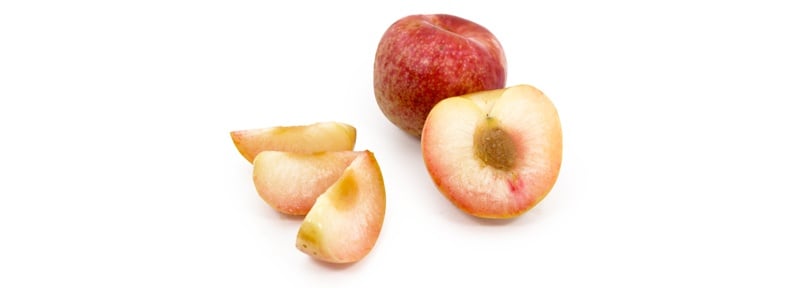
This is a pluot, a beautifully constructed hybrid-cross between a plum and an apricot. Some people consider pluots to be the perfect fruit, but it’s also very much still a work in progress. Though the first successfully controlled cross between a plum and an apricot occurred more than a century ago, most people are unfamiliar with pluots. And those who are fortunate enough to have tasted these juicy fruits are often filled with questions about the mysterious hybrid.
Fortunately, Boston Organics is here to take you “beneath the peel,” giving you a better understanding of the mysteries behind the organic pluot.
What Exactly Is a Pluot?
In simple terms, pluots are a combination of a plum and an apricot. Pluots contain between 60-75% of a plum’s genes and therefore exhibit slightly more plum-like characteristics, most notably a smooth outer skin.
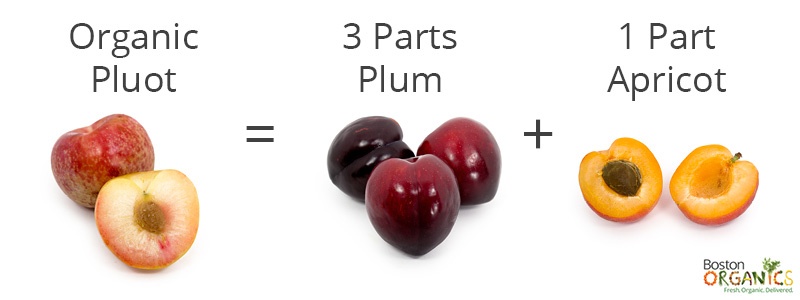
While plums and apricots have naturally cross-pollinated for hundreds of years, the origins of the American pluot date back to the early 1900s with the invention of the plumcot. Under very precise conditions, Luther Burbank, the father of modern horticulture, successfully bred a plum tree with an apricot tree. The resulting fruit was reportedly delicious, but difficult to grow and transport. It generally takes 12 to 15 years to develop a hybrid with widespread commercial appeal, and with Burbank's death in 1926 it seemed unlikely that a perfect hybrid would be created.
When Floyd Zaiger managed to breed a plumcot tree with a true plum tree in 1989, he realized he had struck a golden combination and he trademarked the name “pluot,” which indicated this hybrid’s more dominant plum heritage. As you might expect, the “apriplum” is the opposite of a pluot, with more than half of its lineage coming from apricots.
Over the last two decades, more than 20 varieties of pluots have been developed, with new ones coming out every year. By combining different plum varieties with different apricot varieties and breeding those pairings to create unique genetic lines, Zaiger has created pluots with golden yellow skin and creamy white flesh, others with speckled green skin and deep red flesh, and everything in between.
And just as you can taste the difference between a McIntosh or a Gala apple, the difference in flavor between a Dapple Dandy and a Flavorosa pluot is quite significant.
Are Pluots GMOs?
With the unchecked growth of genetically modified organisms (GMO), there is understandably a lot of concern over the spread of GMOs in our food. Fortunately, you need not worry about pluots because pluots are not GMOs.
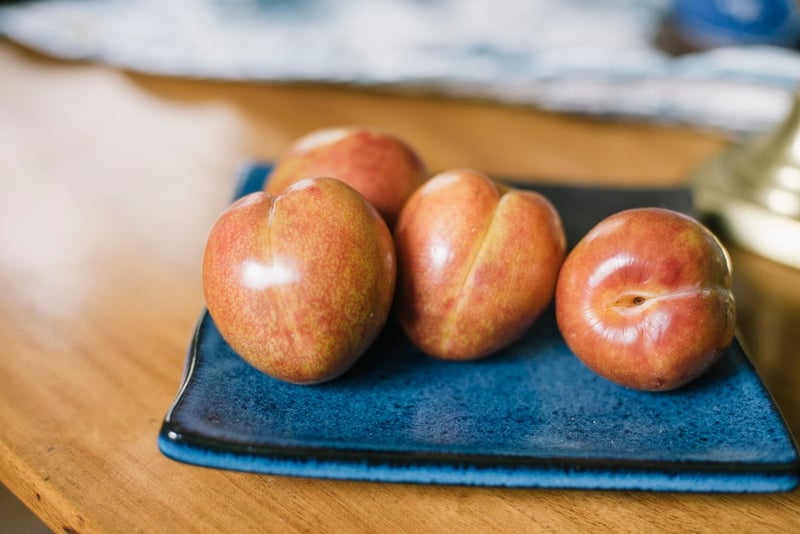
Pluots are a hybrid fruit created through the cross pollination of two species in the same genus. As we explained above, this can and does occur naturally. In the case of cultivated pluots, the hybridization is conducted in a controlled environment to achieve a desired result and prevent bees or the wind from interfering. Though the hybridization is overseen by humans, the process is drastically different from bioengineering.
Bioengineering is a strictly human-driven process that involves changing the DNA in an organism. If hybridization is like mating two cats with different colored coats in the hopes of creating a striped cat, bioengineering is like taking a solid-colored cat and manipulating his genes to make him striped.
Most of the fruits and vegetables our grandparents ate were hybrids. A grapefruit is a cross between a pomello and an orange and peppermint is a hybrid of watermint and spearmint. The apples, bananas, broccoli, carrots and kale that we know so well are all different from their ancient, wild counterparts and have been domesticated through many generations of hybridization.
The only GMO fruit that you currently have to look out for on supermarket shelves are papayas and zucchinis. There’s also a new non-browning genetically modified apple that recently received approval from the USDA, but it’s still not commercially available.
How Do I Pick the Perfect Pluot?
Even though you don’t have to worry about GMO pluots, you still want to make sure you’re eating certified organic pluots. Conventionally grown (nonorganic) fruit is often sprayed with toxic chemicals and even if you wash the fruit, you’re still likely to ingest these synthetic pesticides. Stone fruit, like peaches and nectarines, top the Environmental Working Group’s Dirty Dozen List every year, because their thin skin more readily absorbs the pesticides.
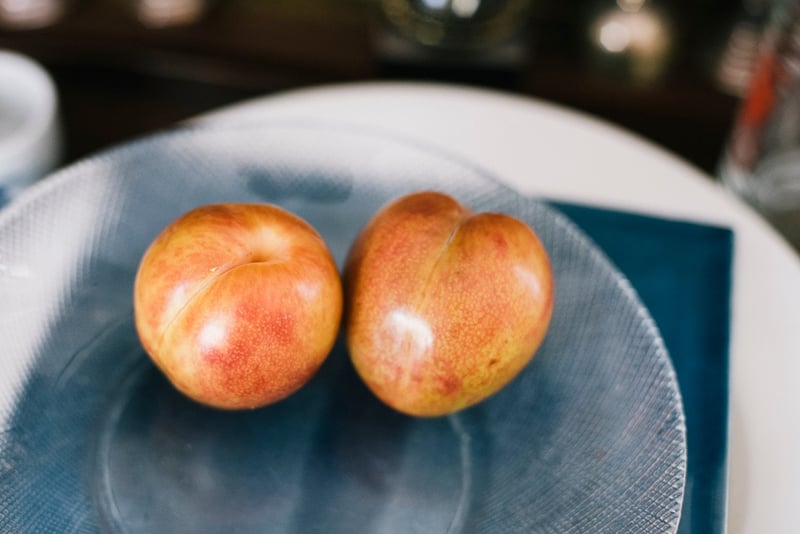
Once you get an organic pluot, whether it’s from a farmers’ market or in your Boston Organics delivery, you’ll probably have to let it ripen for a day or two on your kitchen counter. Placing a pluot in a brown paper bag can help speed up the ripening process.
Once your pluot's skin becomes fragrant and soft to the touch, you can eat it right away or place it in a plastic bag in your fridge for another two to three days. Always let your stone fruit return to room temperature before you eat it, however, to enjoy its full flavor.
How Do I Eat Pluots?
Just like plums and apricots, pluots are most commonly eaten out of hand, but they can also be used like other stone fruit in both sweet and savory recipes. Slightly under ripe pluots are a great addition to salads and can be grilled and served with pork or lamb chops, or used in salsa or clafoutis or in crisps and cobblers.
Our weekly produce boxes regularly contain pluots when they’re in season (between May and October). See if you’ll get this nearly perfect organic fruit delivered to your home or office this week.



